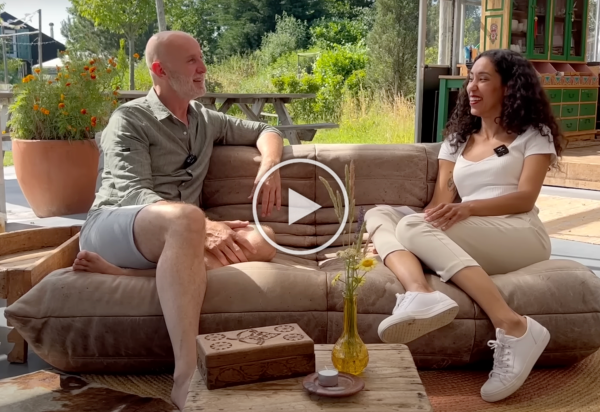How honest and constructive conflict can strengthen relationships and help both of you feel heard.
An old-fashioned argument—who doesn’t love it? The chance to hammer down your point of view and fuel your own ego, often at the other person’s expense. If you're unsure how to start an argument , yet still want to give it a go, I have the golden tip for you! One that always works, with everyone.
We all do it
Kidding aside, most people will agree that arguing isn’t fun. Some will even go to great lengths to avoid conflict altogether. I count myself among those people, though whether that’s necessarily healthy is another question—and a topic for another time.
Still, despite most people disliking arguments, we all face them sooner or later.
Disagreement, conflict, dispute...
Disagreement, conflict, spat, clash, discord. The English language offers ample choices to describe the phenomenon. Whether it’s with a brother, cousin, friend, partner, parent, child, or neighbor, arguments seem inevitable. Generally, the closer someone is to us, and the longer the shared history, the more challenging it is to work through.
Of course, there are different degrees to conflict—ranging from a mild exchange of words to a full-blown argument where ties are severed and bridges burned.
The core of conflict
Taking a step back often reveals the core of an issue. With conflict: two (or more) people view a situation differently to the point that continuing contact feels strained or impossible. Opinions seem to clash. Words may fly back and forth without truly being heard. This cycle can continue, whether through endless discussion or prolonged silence, without any real change.
A pile of stumbling blocks
I’ve thought a lot about this over the years—particularly when I was in a relationship with someone who would emotionally check out whenever a disagreement arose. This made for an unfair “fight,” as you can’t engage in conflict with someone who isn’t mentally present. Despite being generally conflict-avoidant, I sometimes feel the need for an honest confrontation—not because it’s enjoyable, but because it needs to be worked through. If you don’t, those stumbling blocks can pile up, forming a wall so tall that it blocks any real connection.
Arguing fairly
It may never be pleasant, but I genuinely believe there is such a thing as fair arguing. In the end, all people have the same underlying need—to be seen and acknowledged. This need becomes even more pronounced when perspectives strongly differ.
When someone comes to you, expressing that they’re hurt by something you said or did, they aren’t waiting for a lengthy explanation of your reasoning. In fact, there’s a good chance they won’t hear a word of it until they feel that their feelings have been heard.
But what about me?
What if, instead of rushing to explain, you first connect with the other person? Without an agenda, without wanting to justify yourself. What are you saying indirectly? “I hear you, I see you, I take you seriously, I value our connection,” and so much more.
The fact is, this person feels affected, is in a state of emotion, and simply wants to be heard. Once you can genuinely offer that space, lend a listening ear, and maybe even say how sorry you are that your words or actions made them feel this way, space will naturally open up for your side of the story, too—which, of course, deserves to be heard just as much.
No friction, no spark
Arguments may never make it to anyone’s list of favorite pastimes, but they’re part of life. After all, they say, “no friction, no spark.”
In fact, studies show that couples who argue more frequently—especially in the beginning stages of a relationship—tend to have stronger connections and higher relationship quality overall. So yes, there’s actually something to gain from arguing!
Guaranteed conflict plan
For those who would rather experience conflict firsthand, I’ve developed a guaranteed plan to drive even the most conflict-avoidant person in your life up the wall.
Step 1: Wait until someone expresses a genuine feeling of disappointment or irritation toward you.
Step 2: As soon as humanly possible, start talking about yourself and why your actions or words were justified.
Step 3: Important! Avoid acknowledging the other person’s feelings, and don’t ask what they might need from you. This last step could suggest empathy, which is precisely what you’re looking to avoid.
Just kidding!
Since I love sparking reflection through a bit of humor, I came up with this ridiculous example in the hope that the next time you find yourself in this kind of situation, you remember this advice and, ideally, apply the exact opposite.
Here’s to more fair, honest arguments!
Misschien vind je dit ook leuk


















